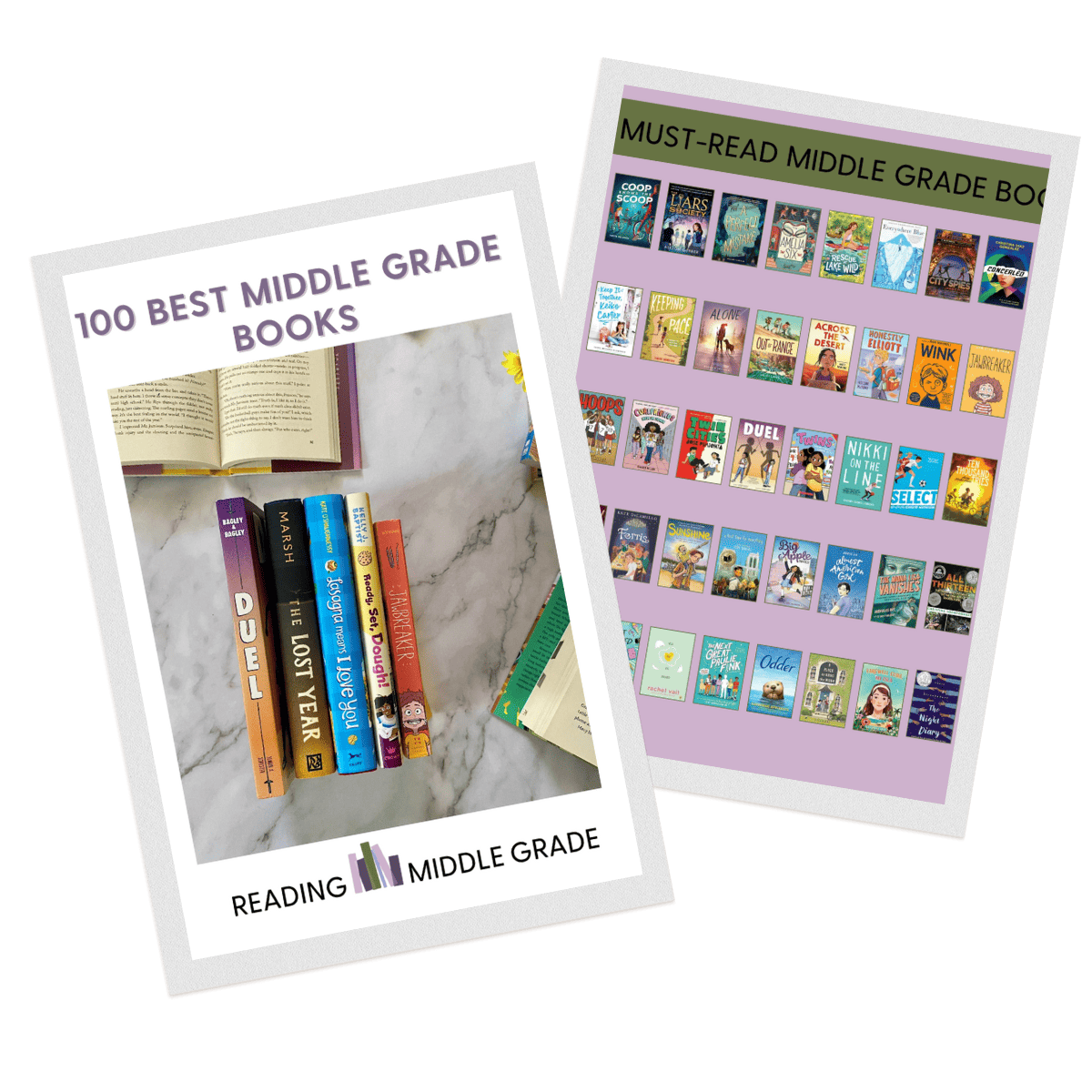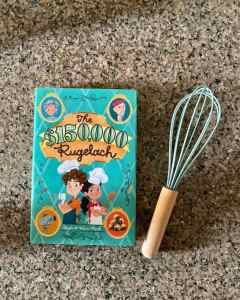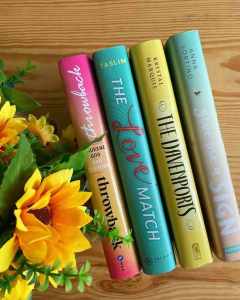Anwuli Ojogwu is the co-founder of Nigerian small press, Narrative Landscape. Not sure who they are? Narrative Landscape Press is responsible for these lovely ankara covered versions of Chimamanda’s novels. They’ve also published Oyinkan Braithwaite’s My Sister the Serial Killer and Marlon James’ Black Leopard, Red Wolf in Nigeria.
I spoke to Anwuli about her path to co-founding an independent publishing firm and her work as an editor. We also discussed the challenges the small Nigerian press faces, her mission to standardize Nigerian editorial rates, and advice for budding editors.







Please tell us what you do for a living.
I manage two organisations that I both co-founded. The first one is in book publishing. I co-own an independent publishing firm called Narrative Landscape Press. It was founded in 2016. The second one is in training and development. It’s a non-profit association for editors called Society for Book and Magazine Editors of Nigeria. It was founded in 2018.
Why did you and your co-founder decide to start a publishing house in Nigeria?
I would like to think there are several reasons we were inspired to start our own company. First is our love for literature. I am an editor and my partner is a writer—it’s a perfect match with the perspectives that we bring to field.
Second is we wanted to contribute to nurturing new voices in literature. We were both ready to start our own company. We both have a long background and training in publishing, and are both Farafina (Kachifo Limited) alums—I am a second-generation editor from the company, and he was the COO of the company for three and half years.
Third is there was room or opportunity for a new publishing company in the industry.

What challenges did you face in the beginning and how did you cope? What challenges do you still face as a (relatively) smaller press in Nigeria?
Capital. That is always the problem for any small business. But we were able to get support by getting a small business grant that enabled us to establish the company’s foundation.
The next is developing diverse voices. I would like to say that my partner and I really want to be able to raise new voices in literature that are non-Nigerian as well as Nigerian. It’s not easy to sell non-Nigerian books to a Nigerian audience except they are literary enthusiasts who read vastly, or die-hard fans of a particular genre.
We have such a large market in Nigeria, yet our audience is picky and culturally tribal to their own sometimes. But it is important if we are to publish literature from all over Africa just like what Bibi Bakare of Cassava Republic is doing in the UK with African literature. We don’t have to wait until an African writer’s novel is listed as a New York bestseller, before we consider it.

Another would be distribution. Publishers serve multiple roles that are separated in Western countries. Here, we are distributors and marketers at the same time. In structured systems, these are different industries. In the US, Barnes & Nobles has over 3000 bookstores around the country. We do not have that luxury here in Nigeria; we have to distribute as publishers. Our options are limited.
Also, the theft of intellectual property is a big challenge. The ability to pirate a book at will with no fear of repercussions by these pirates is bewildering to us in the industry. Marketing is expensive, at least traditional publishing. We cannot afford to take out ads in newspapers to advertise, and the media does not subsidize rates for small businesses. So we use social media and other digital means, but writers still like to see themselves in print.
What milestones have been big wins for the press since you began?
I would say our acquisition of titles we are proud of and are in line with our vision to produce diverse voices. For instance, we acquired the right to publish Chimamanda Ngozi Adichie’s titles. We also acquired the Nigerian rights to Oyinkan Braithwaite’s novella, My Sister the Serial Killer. The book has been doing remarkably well, being nominated for major prizes such the Booker Prize and Women’s Prize. We also acquired the rights to the acclaimed writer of Caribbean origin, Marlon James’ epic novel Black Leopard, Red Fox. And we have plans to produce more intriguing titles.
What has surprised you about running a publishing business in Nigeria?

Because I have been in the industry for a long time, for over 13 years, I must admit running a publishing business in Nigeria and all its complications did not take me by surprise.
What I was surprised about was running a business entity itself: the long hours—you literally do not stop working. Publishing is a labour of love. It requires creative and technical expertise to run a publishing business. If you go into publishing for the fun of it or because it seems like an easy entry business, you may be disappointed by the outcome.
It is important to understand both the technical and creative aspects of the business. It will help to set up the structure: human resources, finance etc. that is required.
What are some of your future goals as a publisher? What are some of your dreams for the Nigerian publishing industry?
My dreams are many. But I will name one or two. First, my partner and I would like to expand our business: acquire more titles by creating new imprints in interesting areas and enter partnerships. We are working on that.
I wish the Nigerian publishing industry could be more organised with government’s help. Publishers in Nigeria are professionals and they take on a lot to handle problems that are systemic and not ours to handle.
We would also like proprietary material/intellectual property protection to be taken more seriously; we would like distribution and marketing issues to be solved; we wish for a more diverse reading audience. That is all I will wish for right now.
Let’s talk about your career as an editor. How did you end up working as a freelance editor? Was it always something you wanted to do?
I began as a career editor, starting at Kachifo Limited, publishers of Farafina trademark in 2006. I was there for three and half years. It was the period of the literary renaissance, when new contemporary voices were emerging. Writers such as Chimamanda Ngozi Adiche, Chika Unigwe, Sefi Atta, Biyi Bandele, among others.
It was a wonderful time to be in publishing.
So from publishing, I moved on to communication roles. I went into the development field, and joined a non-profit, where I served as a Communications Manager. Later I ventured further into the Sustainability field where I was a senior consultant in communications and development. I handled research and publications, and designing awareness campaigns for government social development programmes. I also served as a Digital Communications Manager abroad in a non-profit as well.
In communication, you serve as an ad hoc editor because you manage the composition and presentation of information in many forms, which you try to ensure, is in its highest quality. When I returned to the country, I helped set up editorial departments for some companies serving as an editorial consultant. Then in 2016, my partner and I started our company.
Did you ever work a 9-5? At what point did you realize that the 9-5 life was not for you; what convinced you?
I did work 9-5 as an editor. It was good training. I recommend it for anyone who wants to venture into the field. It helps to teach you structure and likely how to define your career. For example, I love the renowned editor Max Perkins, who discovered Ernest Hemingway, F. Scott Fitzgerald, and Thomas Wolfe, among others. I admire the type of faith he had in the kind of works that he produced that influenced a generation. I aspire to model my editing career after his.
It’s a tall order, but we need someone to look up to as editors. Every editor should. Editing is more than crossing “T’s” and dotting “I’s” in manuscripts. Editors should be ideological. They should aspire to help shape and launch ideas.
I would not say that I did not think that 9-5 was not for me. I just itched to do more; I can be restless. Yes, I still freelance. I work as an editor in my publishing company, and for other private people. Also, I manage the editorial department and my partner handles business development. I think every editor can work freelance and work a day job at the same time.
How did you figure out how best to price your services? That’s something a lot of business owners & content creators struggle with and I know it’s something you’re working on standardizing for Nigerian editors.
The issue of pricing is still an area of concern. There is no standardised fee structure that editors can lean on at the moment. In publishing though, we have a standardised way of calculating a fee for editing for editors. But editors can’t apply the same system.
Editors have relied on their own intuition to charge fees; they are made to judge the value of their work. Unfortunately, many clients do not see this value and tend to undercharge the editor. However, editors with more experience and expertise can command a huge fee. They have a track record and have worked with reputable organisations to enable that.
But what I find ironic about the pricing issue is when clients seek foreign editors to edit their work. I have encountered a few. The least a foreign editor will take is over $1000. They charge say between $0.3 and $0.6 per word, then calculate that by 250 pages or 40,000 words for a novella. But these clients go ahead and pay for the value.
If they can do that, they may as well give the money to a Nigerian editor. Pricing structure is an issue that SBMEN is working on, and hopefully will resolve soon. Freelancers need it, especially those who are new in the industry. We also have to take some things into consideration when fixing prices, like the social economic environment; many people want the service, but many can’t afford it. There has to be a balance. There are other things to consider, but that is chief.
Which resources would you recommend for new freelance writers looking to improve their craft?
Read. Read. Read. And read everything. Never think because I only like literary fiction, I am going to read only that. Reading helps an editor accomplish two things: learn what they like and learn what they do not like. For instance, I do not edit Children’s books and Sci-fi. Sci-fi because I do not enjoy, and children’s literature because I think it is too deceptively simple and I won’t do it justice if I work on it.

If you do not read as an editor, you will not be a good one. Editors are not just freelancers; they are people who handle publications as well in different industries. Another reason to read is to build a repository of resources. For instance if someone came to you with a non-fiction manuscript with a structure and style similar to a book you have read, you have a resource to refer to and guide you on how to edit the book.
Working on a manuscript is not a magical process. It requires in-depth technical knowledge on the elements of creative writing and editing techniques and standards, planning an editorial direction, and external resources sometimes—books you have read.
Reading should also include reading up on standards, it is important to know the difference of basics like America and British styles such as Chicago, Oxford, APA, MLA style guides, and when to use them.
Morning person or night owl? What three things are parts of your morning ritual?
I am a morning person. I love the early hours of 4 a.m. and 6 a.m. when it’s quiet outside before everyone stirs and emerges into day. It’s hard to achieve in Lagos, which is such a noisy city.
I do three things in the morning: take a walk as a form of exercise; make a cup of coffee and plan for the day.
Who are your favourite writers (online/print) to read?
I won’t say I have favourites; there are so many good writers. I can speak to my influences such George Eliot. I loved her novel, Middle March. Then I grew to love Samuel Beckett and James Joyce’s works, especially Molloy and The Portrait of an Artist as a Young Man.
I love the philosophical aspects of literature. I like the stories of the movements that influenced a generation of work or the ideas that shaped style and technique. With Samuel Beckett and James Joyce, I grew to love the stream of consciousness technique, which was then applied by writers such as Virginia Woolfe. There were also elements of that style in Ben Okri’s, The Famished Road and Salman Rushdie’s Midnight’s Children, and I loved that.
I love Gabriel Marquez, particularly, The General in his Labyrinth. I learned to love T.S Elliot’s modernist poetry, especially expressed in Wasteland, and his philosophy that literature should be spared of emotional drivel and rather be presented as a logical form of thought. And I also love the late Nobel Laureate’s Wislawa Szymborska work. Her poem Salt is mesmerising. I was influenced by Wole Soyinka’s plays. My favourite is Kongi’s Harvest, and his non fiction, The Man Died, which I read at twelve.
For essays I love many, especially our very own Teju Cole. He evokes a solemn mood and erudition that immerses you in his work and makes you imagine you are more knowledgeable than you were before you started reading his work. I love reading writing by Nigerians, Africans and Asians, and on and on, so long as it’s daring literature, including difficult works you can’t penetrate. They are many.
What do you like to do when you’re not working?
I love dining out with friends or visiting my godson or just staying still in one place (that I have been unsuccessful, my mind roams without control).
Meet Anwuli Ojogwu

Anwuli Ojogwu is the co-founder of Nigerian small press, Narrative Landscape. She is also the co-founder of the Society for Editors Nigeria.
Connect with Anwuli on Twitter.

If you know any freelancers or writers/editors (whether freelance or not) who’d like to chat about their work and experience, please send them my way 🙂 Wanna know more about Nigerian publishing? Read my interview with the managing editor of Farafina Books here.
More Freelancer Interviews
- Adebola Rayo on writing and editing in Nigeria
- Joy Ehonwa on marketing yourself as a freelancer
- Kat Boogaard on working as a freelance writer













wow, what an amazing woman. Thank you for featuring her!!
I know right?! Thanks for reading, Jane! 🙂